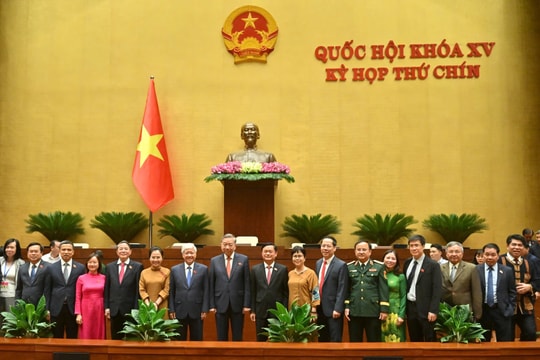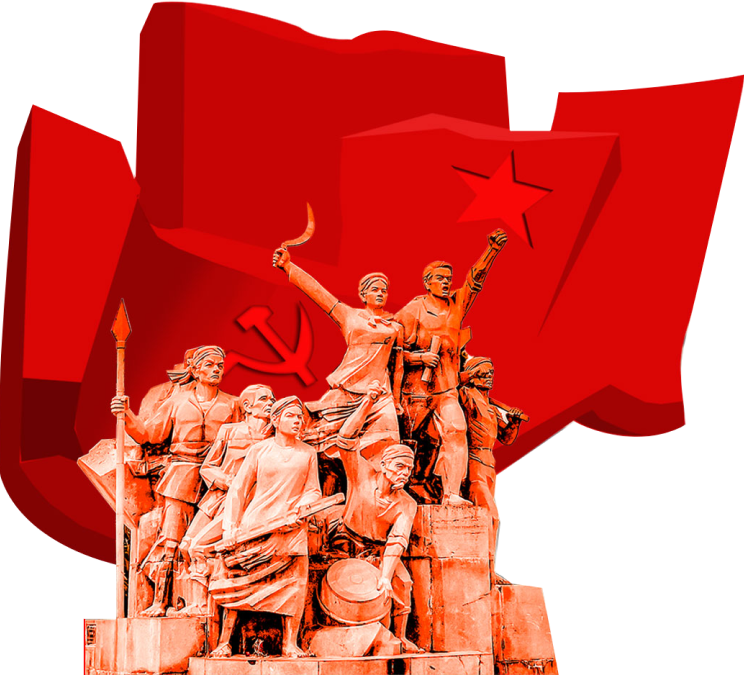Two brothers are delegates to the first National Assembly.
(Baonghean.vn) - They are Mr. Ton Quang Phiet and his younger sister, Mrs. Ton Thi Que. Mr. Ton Quang Phiet has been active in patriotic activities since 1925, is the founder of Vietnam Nghia Doan, Phuc Viet Association/Hung Nam Association/Tan Viet Party, the first generation of the Communist Party of Vietnam. His younger sister followed in his footsteps and joined the Hung Nam Association/Tan Viet Party and then joined the Communist Party from the very first days. They were staunch communist party members, endured imprisonment, and devoted their whole lives to the revolution. In 1946, both brothers ran for and were elected as delegates to the 1st National Assembly in their home province of Nghe An.
Family tradition
Mr. Ton Quang Phiet (1900 - 1973) and Mrs. Ton Thi Que (1902 - 1992) were born in the village.Vo Liet, Thanh Chuong district (Nghe An). His grandparents' hometown was in Yen Ho village (Duc Tho, Ha Tinh). The family had a long tradition of Confucianism. His grandfather was Ton Duc Tien (1794 - 1877), nicknamed Lo Xuyen, who passed the Bachelor's exam three times. He had 5 sons, 4 of whom passed the Bachelor's exam, 1 of whom passed the Bachelor's exam. He worked as a teacher, and had two students who passed the Doctorate exam, Phan Sy Thuc and Nguyen Tai Tuyen. Mr. Ton Quang Phiet's father was Ton Thuc Dinh (1870 - 1926), who passed the Bachelor's exam in the year Canh Ty (1900), and worked as a teacher at home.
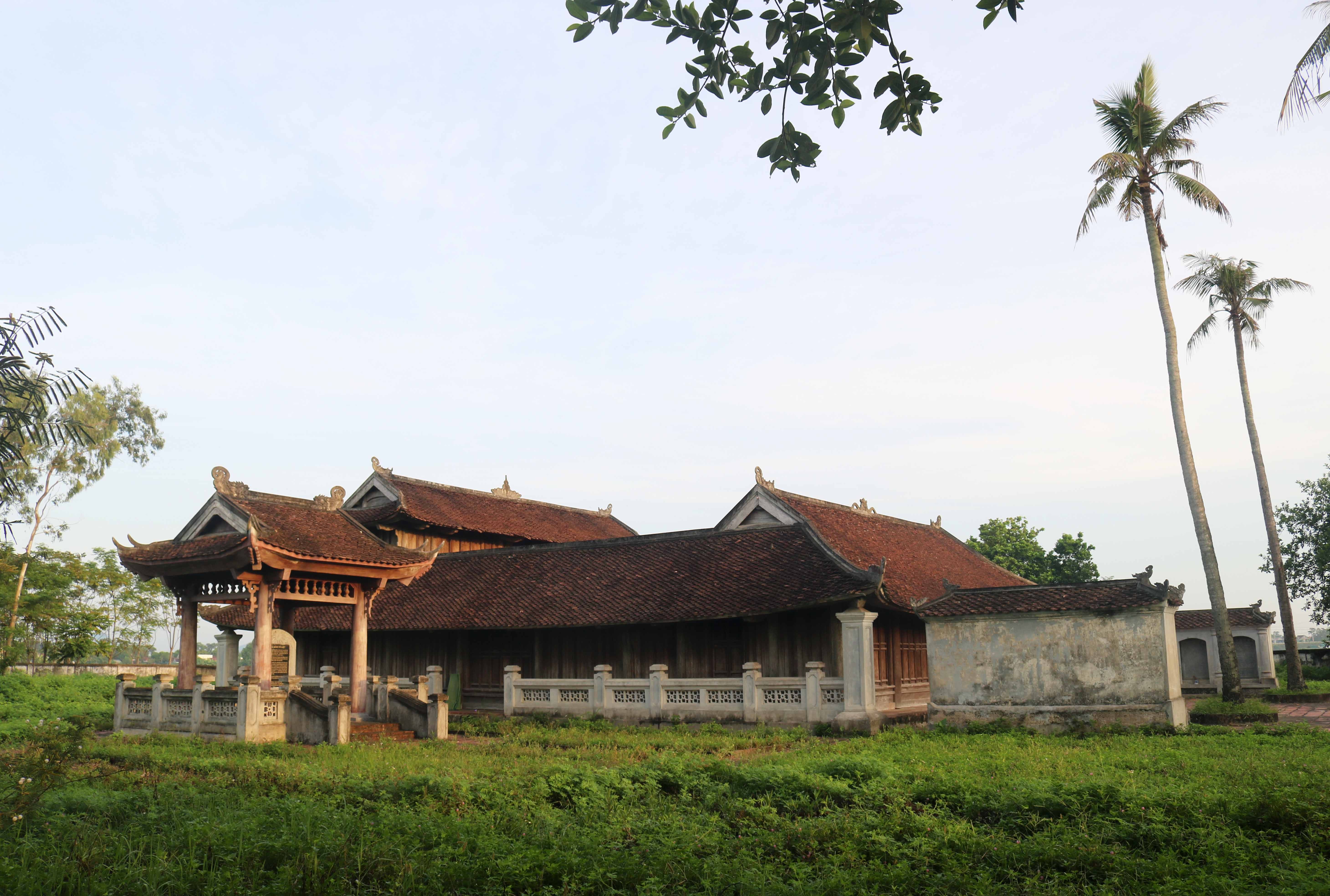 |
| Vo Liet Communal House is located in Vo Liet Commune (Thanh Chuong). Photo: Huy Thu |
The Ton family (in Vo Liet) highly valued family traditions and morality. Mr. Lo Xuyen taught his descendants: "The Ton family is a family with a simple and moral lifestyle, so we must consider maintaining our family traditions and morality as eating our daily meals. When children are born, we must take virtue as the top priority. In life, we should be honest, upright and simple. When people in the family are working for the country, when they retire, they should do one of two jobs: one is to be a doctor to save people; the other is to be a teacher to teach people to read and write." (Memoirs of Ton Quang Phiet).
Politician and scholar Ton Quang Phiet
ChildhoodMr. Ton Quang PhietHe studied Chinese characters with his father. At the age of 12, he was allowed to attend the regional examination. At the age of 15, he took the examination and studied at Vinh School; studied French in the district and in Vinh. In 1917, he studied at Vinh National School. In 1923, he went to Hanoi to study at Indochina Pedagogical College. In 1925, he and other contemporary patriots such as:Dang Thai Mai, Pham Thieu... founded the Vietnam Free Movement organization, participated in the struggle to demand the French colonialists release Phan Boi Chau.
On July 14, 1925, young man Ton Quang Phiet, Le Van Huan, Nguyen Dinh Kien, Tran Dinh Thanh, Tran Phu, and Ngo Duc Dien met at Con Meo hill (Ben Thuy - Vinh) to officially establish the Phuc Viet Association. Ton Quang Phiet was the president.
After organizing a campaign to demand the release of Phan Boi Chau and the funeral of Phan Chu Trinh (March 1926), to avoid being exposed, the Phuc Viet Association changed its name to the Hung Nam Association. Then, to prepare for the merger with the Thanh Nien Association, in early 1927, the Association changed its name to the Vietnam Revolutionary Party. In mid-1927, it changed its name to the Vietnam Revolutionary Comrades Association. On July 14, 1928, the Vietnam Revolutionary Comrades Association held a congress in Hue and changed its name to the Tan Viet Revolutionary Party (Tan Viet Party). Due to internal divisions, in September 1929, the left wing of the Tan Viet Party issued a declaration of dissolution and established the Indochina Communist Federation.
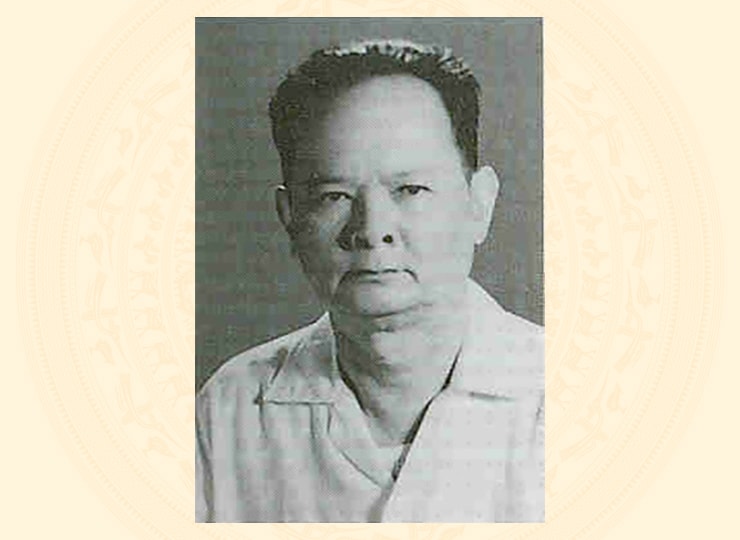 |
| Mr. Ton Quang Phiet. Photo courtesy |
In June 1926, while traveling with comrades Tran Phu, Vuong Thuc Oanh... to China to meet with figures in the Vietnam Revolutionary Party organization, comrade Ton Quang Phiet was arrested by the French in Mong Cai, then imprisoned in Hanoi. After a while, he was released, continued to secretly operate and teach at Thang Long Private School.
In 1930, he joined the Communist Party of Vietnam but was arrested and sentenced to 7 years in prison, exiled to Buon Ma Thuot. In 1934, after being released from prison, he taught in Vinh for a while, then went to Hue to open a private school in Thuan Hoa and contacted the revolutionary movement. From 1936 to 1945, he participated in the Democratic Front, the Indochina Congress movement, the National Language Propagation Association and later worked in the Viet Minh Nguyen Tri Phuong (code name Thua Thien Hue).
After the August Revolution in 1945, he became Chairman of the People's Revolutionary Committee and the first Resistance Committee of Thua Thien province.
In 1946, in his hometown Nghe An, Mr. Ton Quang Phiet ran for election and became a candidate.First National Assembly delegateAt the First Session of the First National Assembly (March 2, 1946), he was elected to the Constitution Drafting Committee; At the Second Session (October 28 - November 9, 1946), he was elected Deputy of the National Assembly Standing Committee and Deputy of the National Assembly Standing Committee, and Head of the National Assembly Legal Subcommittee.
He continued to be elected as a National Assembly delegate of the 2nd, 3rd and 4th terms; was a member of the National Assembly Standing Committee and General Secretary of the National Assembly Standing Committee of the 3rd and 4th terms.
Mr. Ton Quang Phiet is not only a famous politician but also a researcher of Literature, History, and a writer with many achievements. Since 1953, he has been a member of the leadership of the Literature, History, and Geography Research Board under the Party Central Committee.
Mrs. Ton Thi Que, a life with the revolution
Mrs. Ton Thi Que is the younger sister of Mr. Ton Quang Phiet. When she was young, she was also called Ton Thi Em, born on August 10, 1902 (according to French secret police records, she was born in 1906). Growing up in a family with a tradition of education and patriotism, learning the national language, and being in contact with many friends of her father and brother, she soon developed a patriotic spirit and a will to participate in revolutionary activities.
In early 1926, under the guidance of her brother, Ms. Ton Thi Que joined the Hung Nam Association, and was later admitted to the Tan Viet Party (July 1928).
In early 1929, she was elected to the Executive Committee of the Tan Viet Party in Thanh Chuong district. But unfortunately, her husband and children died. At that time, Mr. Ton Quang Phiet was the leader of the Tan Viet Bac Ky General Department. He had just finished studying at the Indochina Pedagogical College but claimed to be sick and did not take the exam to devote his time and energy to revolutionary activities. In order for both brothers to have the conditions to work, the Tan Viet Party General Department arranged for Ms. Ton Thi Que to go to Hanoi to help the Tan Viet Party Branch in Bac Ky.
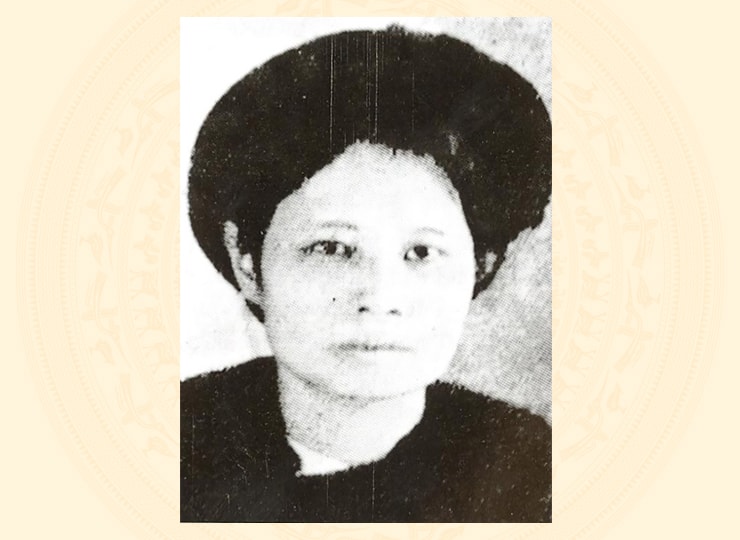 |
| Mrs. Ton Thi Que. Photo archive |
After Ms. Ton Thi Que had been in Hanoi for a while, the Tan Viet Bac Ky Party Committee was terrorized. When the two brothers returned to Vinh, Mr. Ton Quang Phiet was arrested. Ms. Ton Thi Que tried to contact the organization. At this time, the Tan Viet Party had transformed into the Indochina Communist Federation and the Indochina Communist Party was building an organization in Nghe An. After merging the three communist organizations, the Communist Party of Vietnam was born, and comrade Ton Thi Que became a member of the Party.
During the Nghe Tinh Soviet movement (1930 - 1931), she participated in leading the movement in Vo Liet commune and the districts: Thanh Chuong, Nam Dan, Anh Son, Yen Thanh...
At the end of November 1931, Ms. Ton Thi Que was added to the Nghe An Provincial Party Committee in charge of propaganda and training.
On April 4, 1932, she was arrested in Nam Dan and imprisoned in Vinh Prison, sentenced to 20 years in prison. In 1941, the French colonialists transferred her to Nha Trang Prison.
In April 1945, she was released and returned to Nghe An to continue her activities.
The August Revolution succeeded, Ms. Ton Thi Que ran for and was elected as a delegate to the 1st National Assembly in Nghe An.
Since 1946, she was Secretary of the Women's Party Committee of Inter-Zone IV. In 1960, she was a member of the Central Executive Committee of the Vietnam Women's Union and continued to be elected as a delegate to the 2nd National Assembly (1960 - 1964) and was assigned to participate in the leadership of the Supreme People's Procuracy.
One family, two brothers, two revolutionaries, two first-term National Assembly deputies and both elected in their home province is a rare, unprecedented and very proud thing for Nghe An homeland.

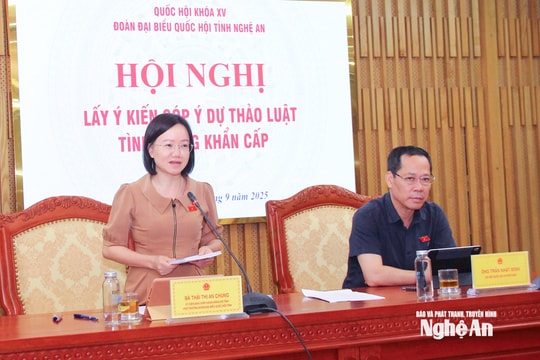
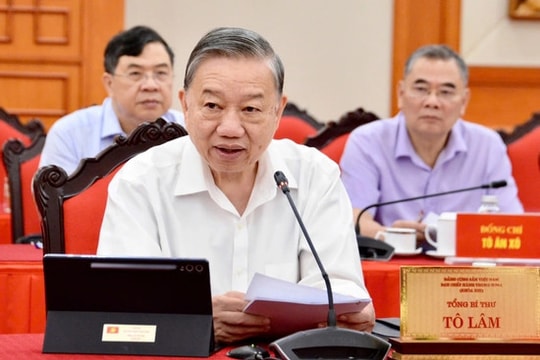
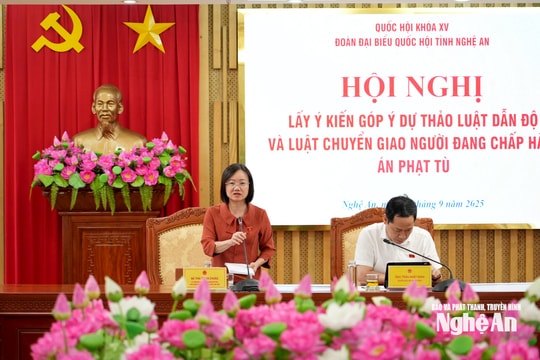
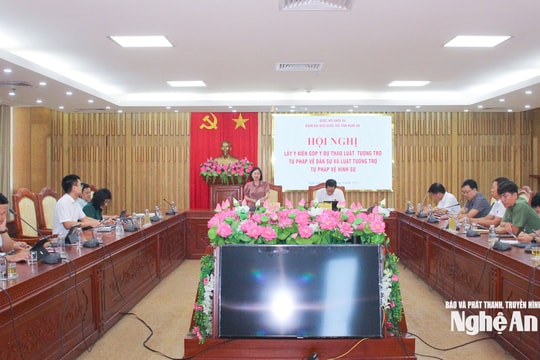

.jpg)
